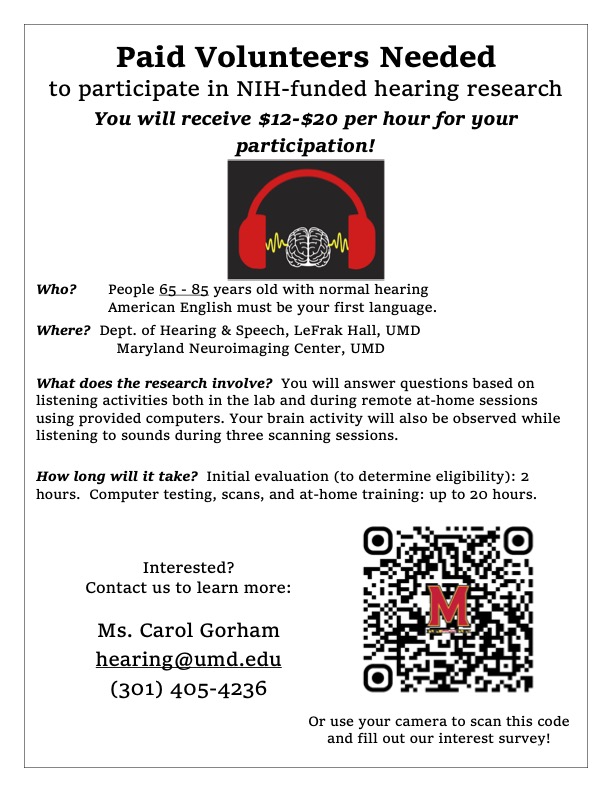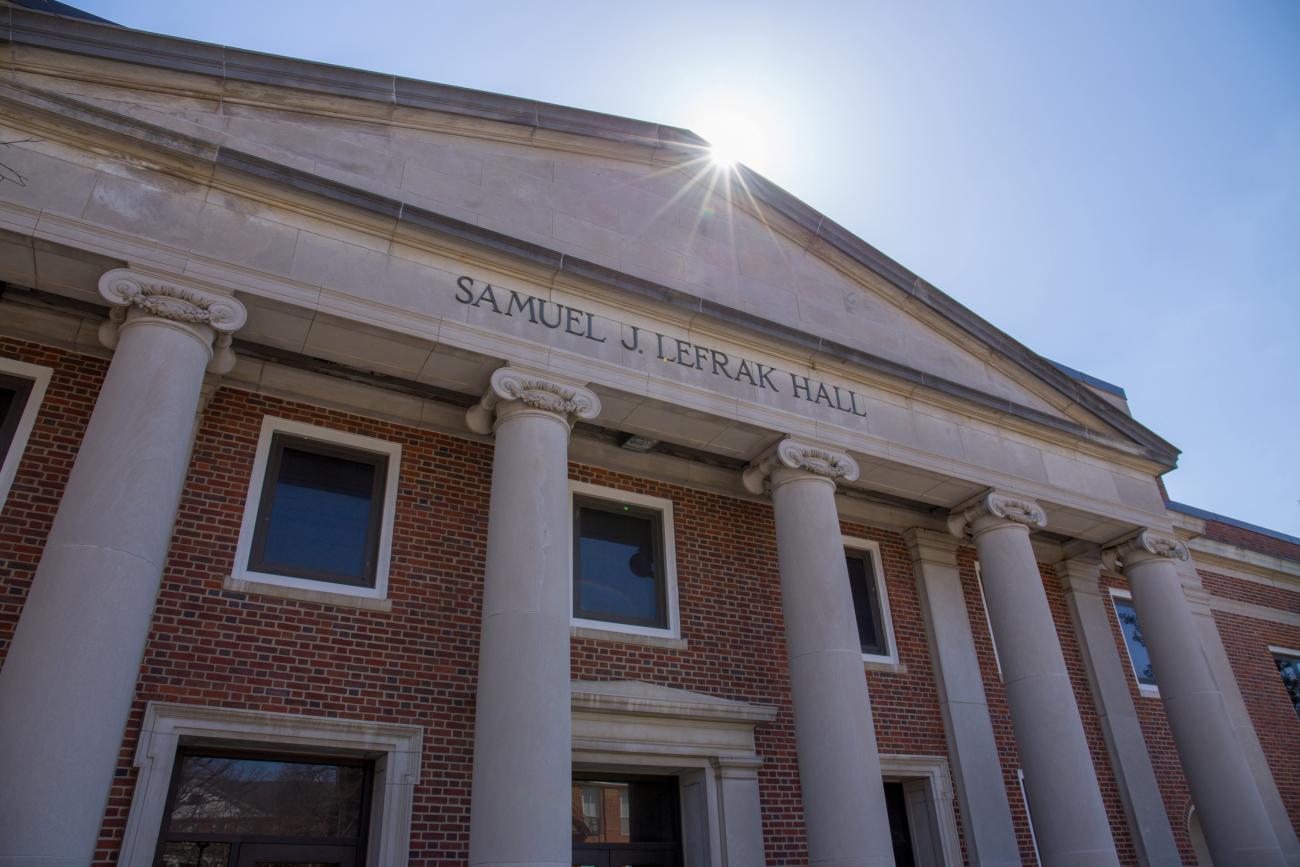Difficulty hearing and understanding speech in background noise is a near-universal problem across all age groups and hearing abilities, which only becomes more pronounced with age. Over 40% of older adults with normal hearing complain specifically of communication difficulties in noise, with limited solutions available using modern hearing aid technology. Auditory training, however, capitalizes on the human brain’s remarkable ability to form new connections in response to novel stimuli and experiences, coined “neuroplasticity.” Despite common belief, the human brain remains plastic and amenable to training well into older adulthood, posing the question: how might structured exposure to different types of “training” tasks benefit older adults’ ability to understand speech in noise? The current study will investigate these effects through the use of behavioral testing, eye tracking, and magnetoencephalographic scans.
Interested in participating? See here for basic eligibility requirements, and fill out our interest form here or using the QR code below.



